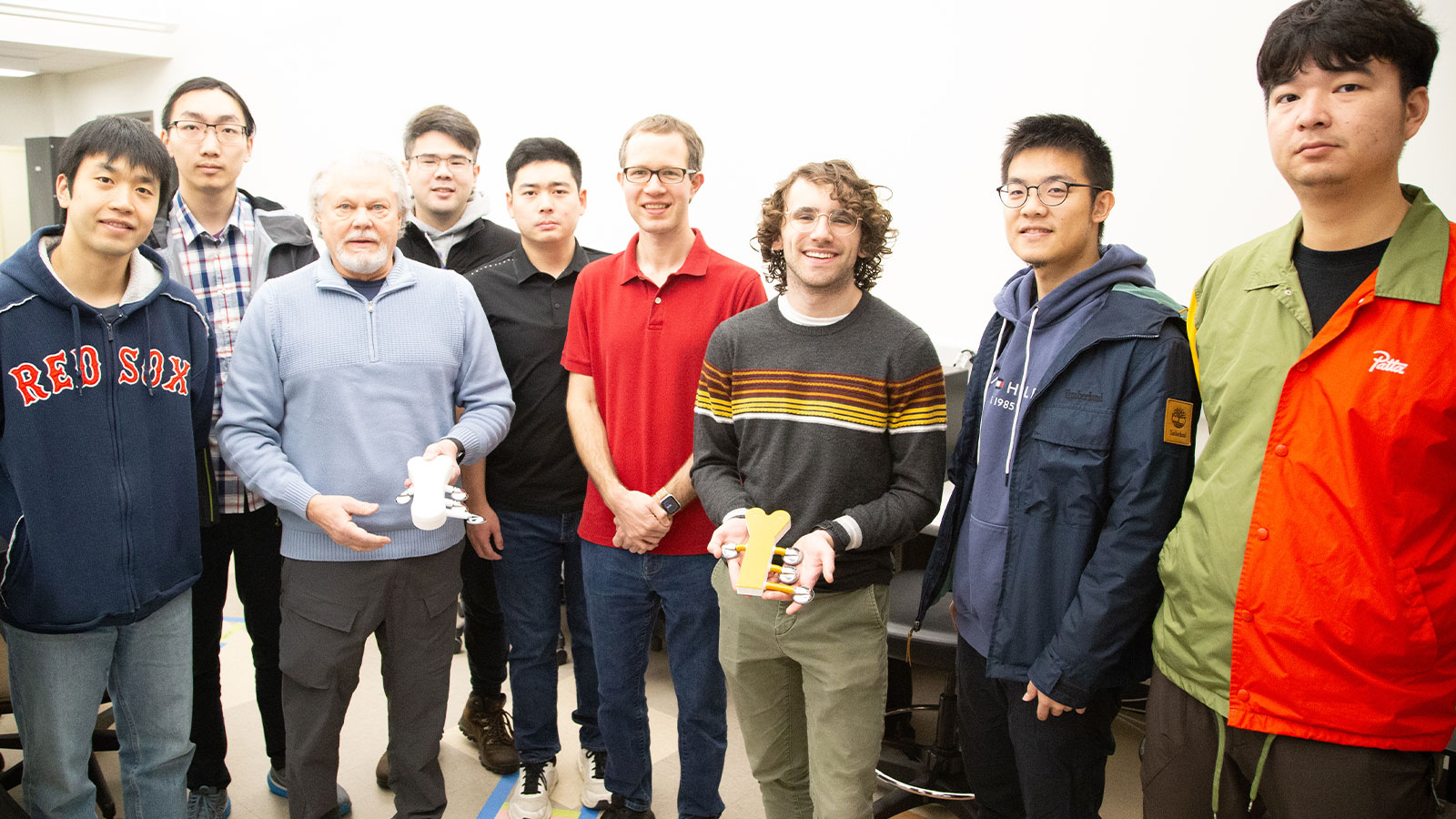Cardio + AI = Cairdio, the handheld device being developed with the help of Rice engineers to diagnose previously difficult to detect heart problems.
“State of the art for identifying heart problems in the doctor’s office today is a digital single-track stethoscope with a mobile app. Cairdio picks up phonocardiogram (PCG) signals clinicians, including doctors, can miss,” said Rick Jones ’76, founding co-owner of HealthSeers, a Houston-based medical device startup.
Cairdio is designed to detect such conditions as arrhythmia, heart murmur and hypertrophic cardiomyopathy. “People are dying every day because their heart anomalies have not been detected. We offer a simple, inexpensive way to screen for such problems,” said Jones, who graduated from Rice with a B.S. in electrical engineering and a B.A. in mathematical sciences.
Jones is working with a team of students in the professional master’s degree program in electrical and computer engineering (ECE) at Rice lead by Joseph Young, assistant teaching professor of ECE and the program’s director.
“The students are working on a deep learning-based method for automatic detection of cardiac diseases using PCG signals. The idea is to prevent cardiac arrest before it happens,” Young said.
The patent for Cairdio was granted last August. The device has four tracks that attach to specific areas of the patient’s chest -- the aortic valve, pulmonic valve, and the tricuspid and mitral valves.
The device captures the first and second heart sounds – what Jones describes as the familiar “lub-DUB” of the human heartbeat -- which are the two primary sounds produced by a healthy human heart. The first occurs during ventricular contraction, the second during diastole, with the closure of the aortic and pulmonary valves. The heart sounds are gathered using a microphone attached to an analog to digital converter.
“Cairdio will be especially useful for nurse practitioners and other healthcare people who work in urgent-care facilities and walk-in clinics that otherwise don’t have the tools or training to triage many serious heart conditions,” Jones said.
The capstone project is now in its second round of students: Yen-Yu Chien, Shaun Lin, Tom Lu, Xinbo Luo and Karl Sheng.

